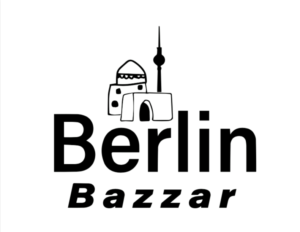Did you know that Salt Lake City is home to one of America’s most close-knit communities of Bosnians? Now, I am a bit of a connoisseur of the Bosnian diaspora. I have followed the Bosnian trail from Sarajevo to Berlin, Vienna and Istanbul. But what, you may wonder, are Bosnian Muslims doing in Utah – the land of the Mormons? For most of us the Mormon Church is a kind of dodgy Christian sect, along the lines of Scientology or the Jehovah’s Witnesses. Mormon missionaries come knocking on your door or approach you in the U-Bahn with their crisp white shirts with black name tags, toothy, white-bread American smiles, offering to tell you the good news about Jesus Christ, his Latter Day Saints and the Land of Zion. By which is meant – not the Jewish Promised Land, of course – but Utah, Salt Lake City. There, the beer is so watered down you need more than a six-pack to catch a buzz, coffee and Coca-Cola are haram (so to speak) and polygamy is still practiced on the sly in remote corners. No, this is not Iran. This is the Christian fundamentalist flip side of the same coin.
Strange tales abound about Salt Lake City, Utah to be sure. But what, I wanted to know, were Bosnians doing there? What were they doing there, and was it possible also to get a good ćevapi with kajmak and ajvar and a side of onions “behind the Zion curtain” as they said in the 90s? It was with this burning question in mind that I decided to send off a couple of emails and make some long distance phone calls, ultimately making contact with one Ermina Mustafic, a student at the University of Utah, and a Bosnian Muslim, who told me all I needed to know about the Bosnians of Salt Lake City. I learned from her that there were around 7,000 Bosnians in Salt Lake City, and that the first ones came fleeing the war in the early to mid nineties. Some had even come from Bosnia via Germany. Germany, it turned out, didn’t want the Bosnian refugees after the war’s end, and was about to deport them, till the U.S. stepped in, announcing they would take them. For some reason, which still puzzles me, many ended up in Salt Lake City. There, I discovered, the Bosnian Muslims had their own mosque – on the site of a converted Baptist church. Most of the Bosnian men were truckers. And, I determined, there was also a Bosnian restaurant somewhere in Salt Lake City and it was called – yes, you guessed it – Stari Most – or, to be more precise, the “Old Bridge Café”.
The “old bridge” is of course, the famous Turkish bridge of Mostar, destroyed by Croat fanatics during the war, rebuilt in 2004 and Bosnia and Hercegovina’s most famously photogenic icon, what the Empire State building is to New York, or the Brandenburg Gate is to Berlin. It seems wherever Bosnians are going they are opening up ćevapi joints called Stari Most, Eski Köprü, Alte Brücke or Old Bridge. It’s something of a Bosnian cliché. Like an Italian restaurant named Pizzeria Napoli. Or an Indian restaurant named Taj Mahal. Only more so.
The last thing I heard about Salt Lake City back in the nineties when I went to university there, was that rockabilly music was making a comeback. That was typical Salt City – roughly ten years behind the trends. I predict therefore, that after making it big in Japan, Balkan Beats will finally one day soon sweep Salt Lake City. And it won’t be pretty.


